From €700k to €1M ARR: WP Umbrella Gets Even Better (Thanks to You)
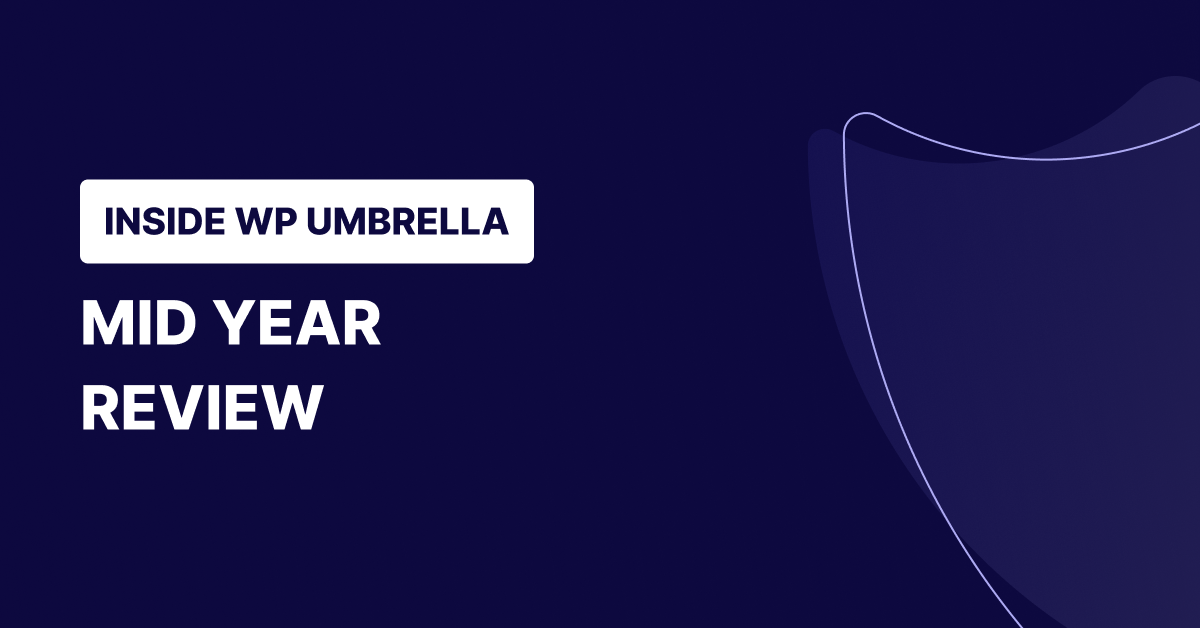
We just crossed €1M in ARR.
Honestly, that sentence alone feels surreal.
Not just because of the number but because things have felt calm. No drama, no major fires to put out. Just steady growth, great user feedback, and a product that’s finally starting to feel like it clicks.
So before things get crazy again (because they always do), I thought this was the perfect moment to pause, reflect, and celebrate.
We’ve come a long way since and what made this possible isn’t a massive ads budget (we don’t believe in venture capital and magic money) it’s consistency, care, and the people who trust WP Umbrella every day.
You.
WP Umbrella in Numbers
At the end of December, we were sitting at €58K MRR.
Six months later, we’ve passed the €1M mark. No launch hype. No paid ads. Just solid progress, week after week.
Our paying user base grew from 2,454 to 3,137, and churn is consistently below 2%, which is something we’re really proud of.
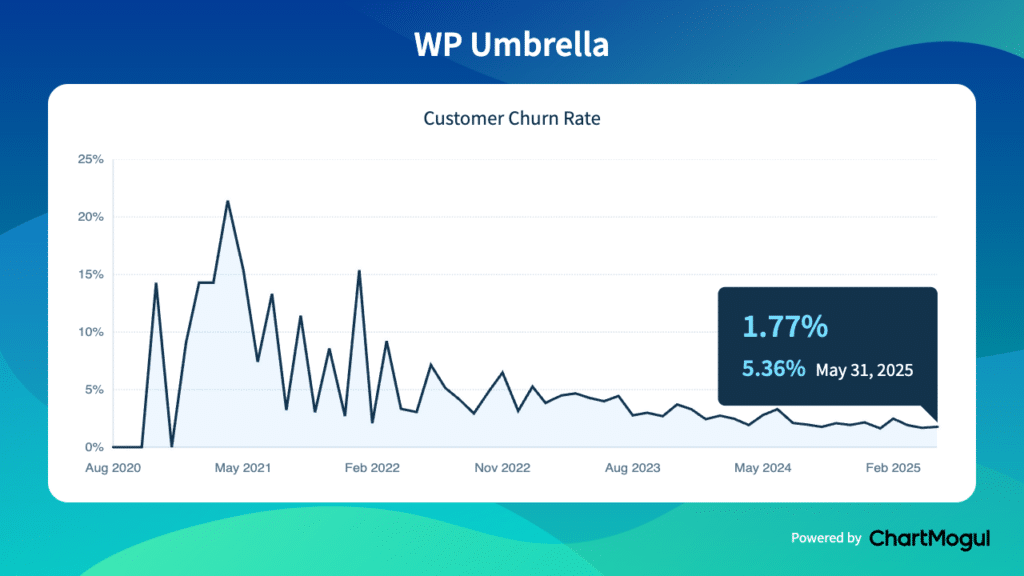
It didn’t come from some magic trick. It came from listening, improving the product, and treating support like a core feature and not an afterthought.
This kind of growth feels different. It’s not explosive. It’s stable. And that’s exactly what we were aiming for.
What We Shipped (Thanks to You)
Most of what we shipped during Q1 and Q2 came from conversations: support tickets, community posts, user interviews, casual DMs.
One of the best examples is the new reporting feature. It started with a public tag from Kyle at The Admin Bar asking if we could build something a bit wild. A few months later, it was live. That back-and-forth, direct loop with our users is what drives our roadmap.
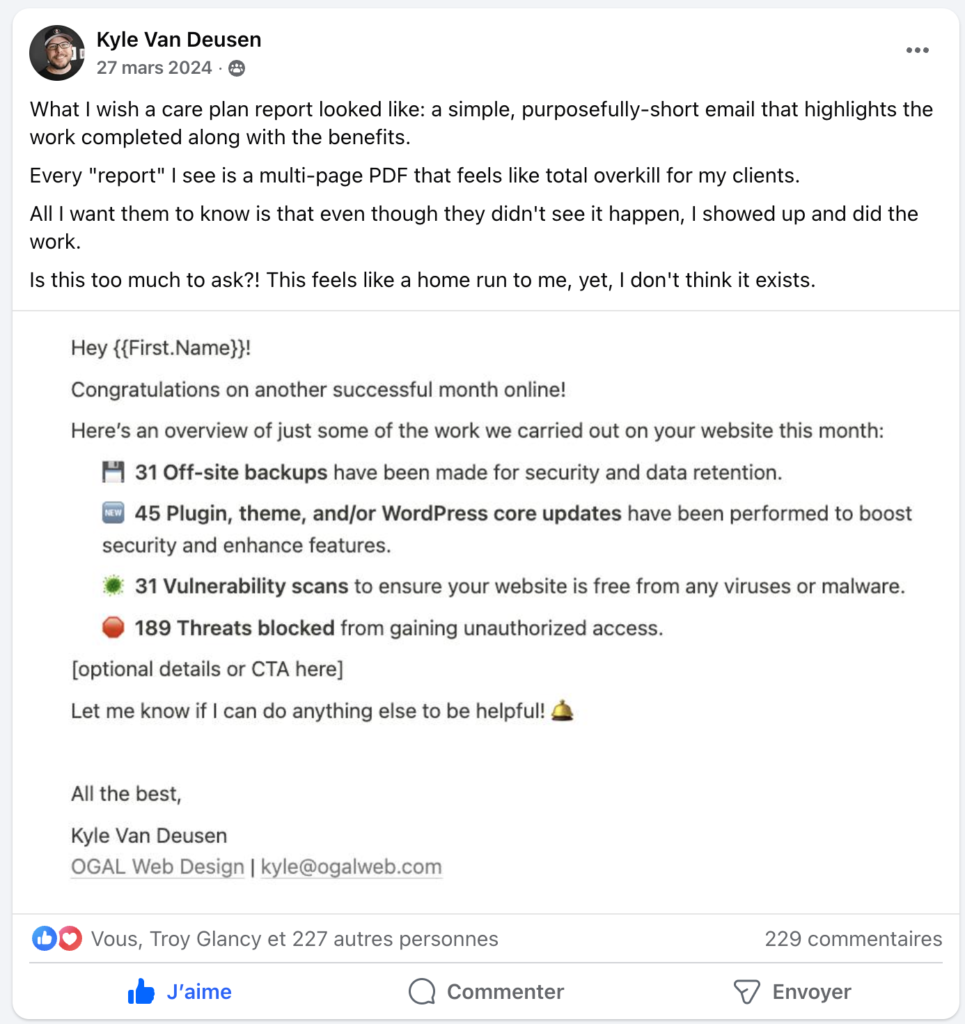
We also rolled out a Patchstack integration, bringing real vulnerability protection into WP Umbrella and turning our tool in one of the most powerful security plugin of WordPress.
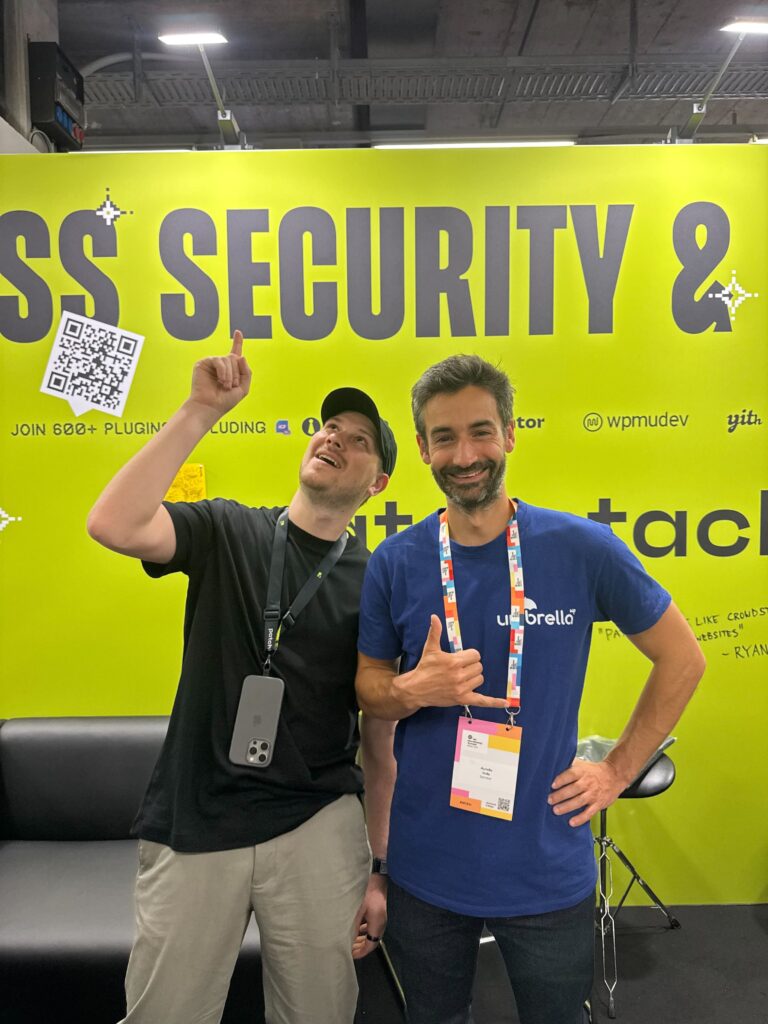
On the support side, we switched from Help Scout to Gleap, which made it easier to handle feedback and bug reports. It also marked our first steps into using AI to boost the customer support team productivity without losing the personal touch.
We’ve also made a bunch of small improvements that added up: better EU payment options, smoother custom work support, and a lot of under-the-hood stability work as usual.
Nothing flashy. Just listening, fixing, and improving. Week after week.
WordPress Vibes and Hosting Integrations
This year reminded us how lucky we are to be part of the WordPress ecosystem, despite all the drama.
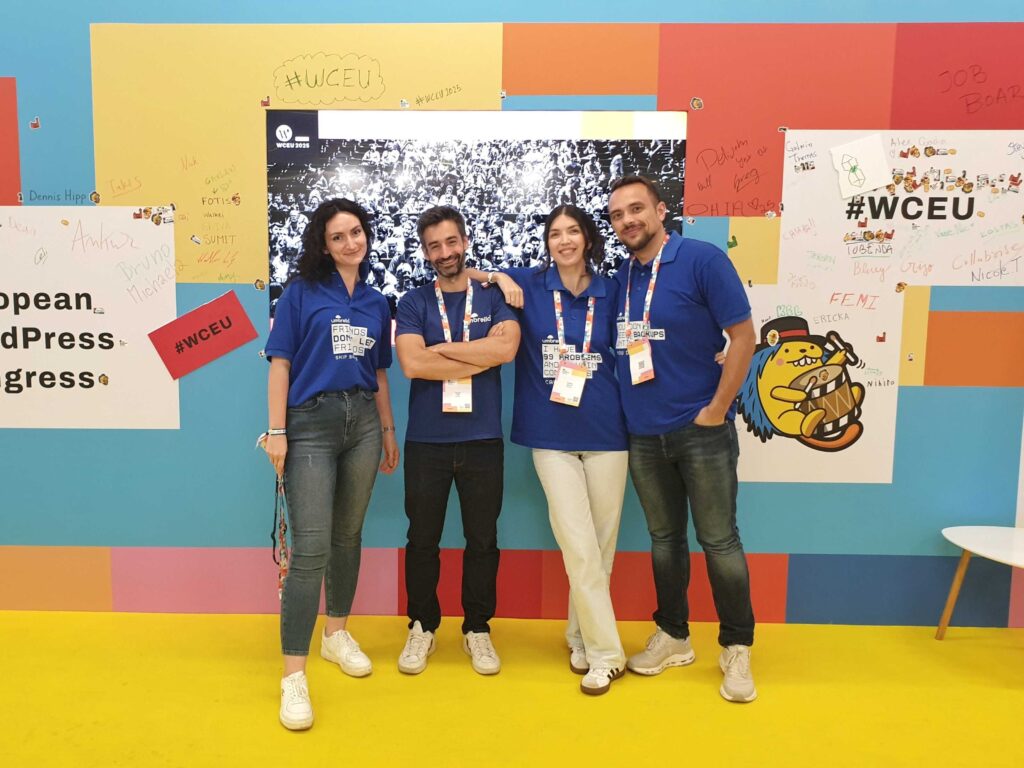
Between WCAsia, WordCamp Europe in Basel, and other community events like WordCamp Toulouse, we got the chance to connect with users, partners, and a few competitors who’ve become friends along the way. These events are always energizing and break the day-to-day routine of a full remote company.
The WordPress community keeps us sharp, and it keeps us humble. That’s the part we want to stay close to.
We’ve also been getting a lot of interest from hosting providers wanting to integrate WP Umbrella into their platforms. And while that’s flattering, it often misses the point.
The real value isn’t in slapping on a white-label tool — it’s in helping people offer real care services to their clients, at scale.
That’s why we’re more excited about partnerships like the one with Hostnet, who are using WP Umbrella the way we envisioned it: as a way to deliver better service, not just software.
Culture > Process
We didn’t just grow revenue during Q1 and Q2 — we also grew the team in a way that really changed the vibe, welcoming Manuela, and Medha in the marketing department.
In January, we brought Dorothy on board who was previously working at ManageWP. She applied at WP Umbrella because she wanted to actually help people — not just acknowledge bugs and move on. That mindset fits perfectly with what we’re building with customer support.
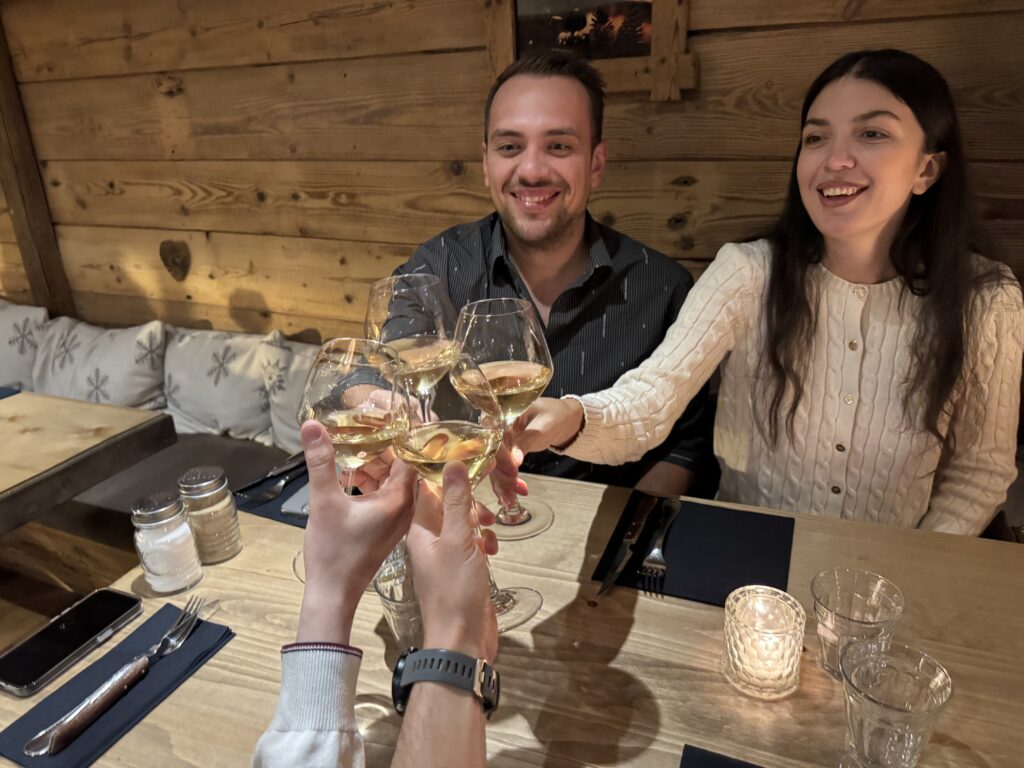
We also spent time together in Annecy, getting out of our remote routines. No bullshit team-building seminars, just a few people working hard, laughing a lot, and building something we’re proud of.
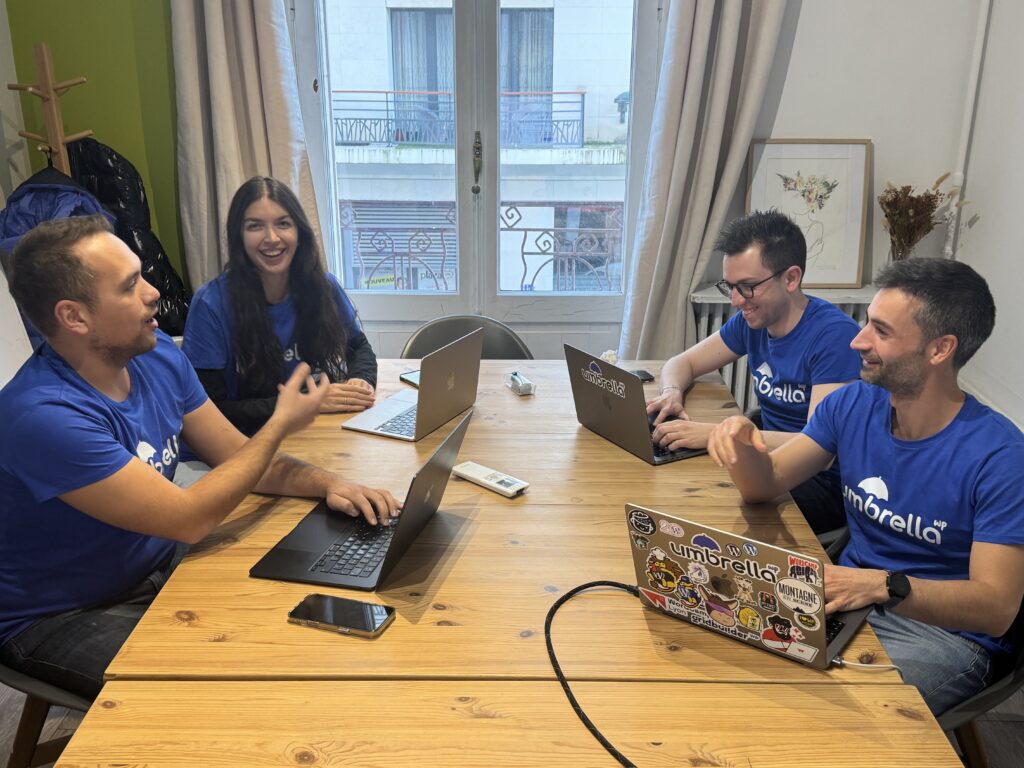
We still don’t use any fancy project management system. No Asana, no Notion dashboards with 14 tabs. We do a weekly sync, we talk, and we get things done. That’s it.
The culture we’re building is Balkan-style scrappy with a mountain-town focus. Calm, but intense when it needs to be. The team is distributed, full remote, across multiple continents and Thomas is now living in Japan for good.
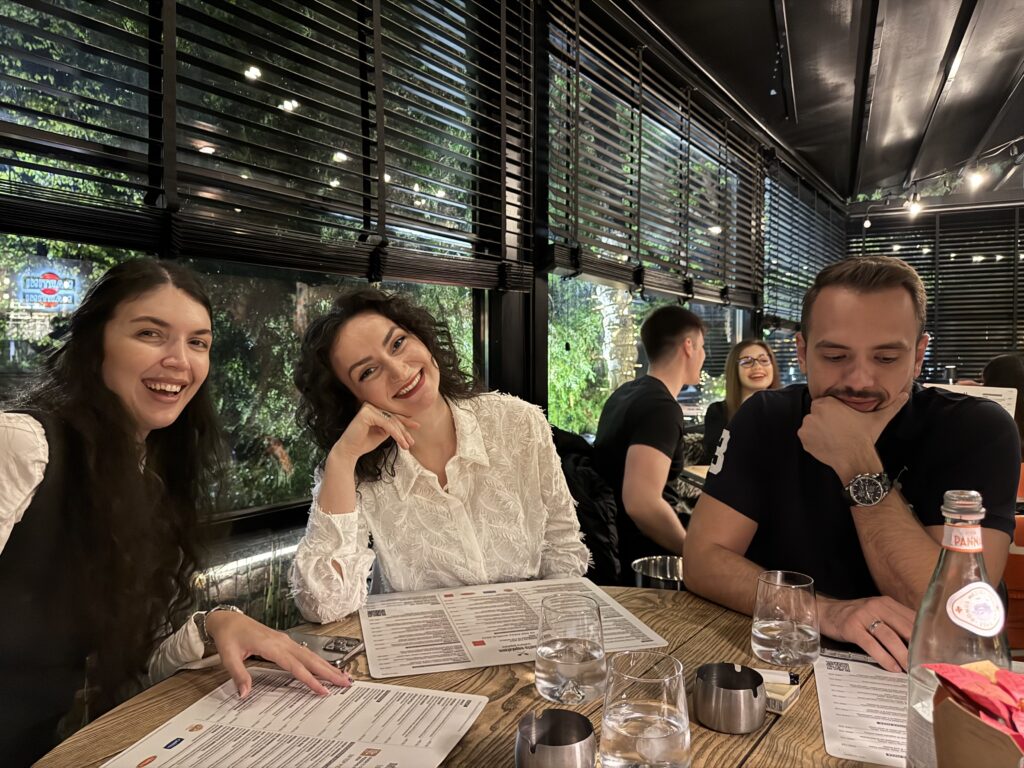
We’re trying to meet several time a year so we can put something concrete on what we are doing, and do the extra mile together.
The Hard Stuff
We are frankly in a nice place, and there’s no big drama to share, but that doesn’t mean it was easy.
Let’s start with hiring. We’ve been looking for a developer who can grow with the product — not just execute tasks, but take real ownership. Someone who understands what it means to work on a lean product team where speed, simplicity, and stability matter just as much as clean code.
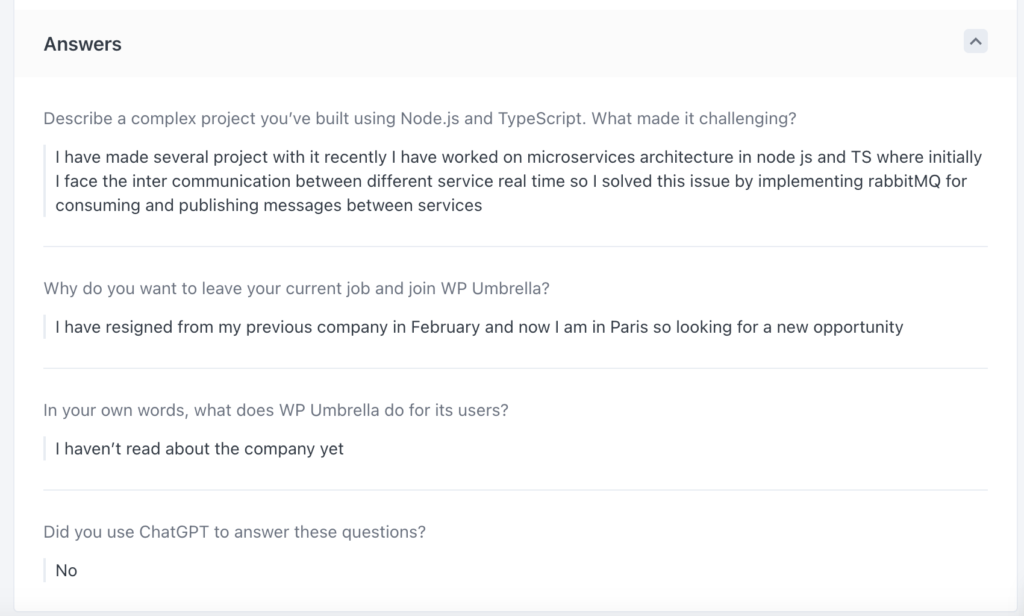
On paper, it doesn’t sound like a big ask. In practice, it’s incredibly hard to find. Most of the devs are full-ai bullies / toxic starting from the screening process or don’t take the technical test seriously.
Marketing is heading in the right direction, but there’s still work to do. The biggest challenge hasn’t been execution — it’s been transmitting real ownership over revenue. It’s easy to find people who can publish content or run campaigns. What’s harder is building a team where people chase results. I need to get better at aligning everyone around that mindset: Stay hungry, stay foolish.
Another challenge we didn’t really expect these quarter was the USD to EUR exchange rate. Since our infrastructure costs are in euros but many of our users pay in dollars, the rate shift hit our margins harder than expected. That’s the kind of thing you don’t think about until it’s too late — so we’re glad we caught it early. We are now assessing the possibility to increase our pricing in dollar only, while sticking to the 2€/month per site to compensate this gap.
And then there’s the mental game.
When everything’s on fire, it’s easy to stay alert. You’re solving problems, moving fast, staying reactive. But when things go well — when the churn is low, revenue is growing, and users are happy — that’s when the hard stuff starts.
Keeping the team focused in those quiet moments takes work. You have to resist the temptation to coast. That means tightening the roadmap, holding yourself accountable, and continuing to ship even when no one’s watching. It’s not sexy, but it’s where all the real progress happens – most of this job is made under the leadership of Thomas, my co-founder and CTO, whose resilience deserves many awards.
No burnout. No crisis. Just the ongoing challenge of keeping the engine running well, while quietly building something that lasts.
What’s Next
We’ve got some important pieces lined up for the second half of the year.
First, we’re about to roll out a new system of logs, the possibility to automate updates, and many small improvement on the stability front. This has been in the works for a while, and it’s almost there.
Second, we’re working on a new dashboard experience — one designed specifically for agencies managing hundreds of websites. Faster, clearer, and easier to navigate. Less friction, more focus.
We’ll keep showing up at WordCamps, keep listening, and keep building.
The goal isn’t to double revenue overnight. It’s to keep making WP Umbrella better — steadily, quietly, and with intention.
Thank you again for this journey folks,
